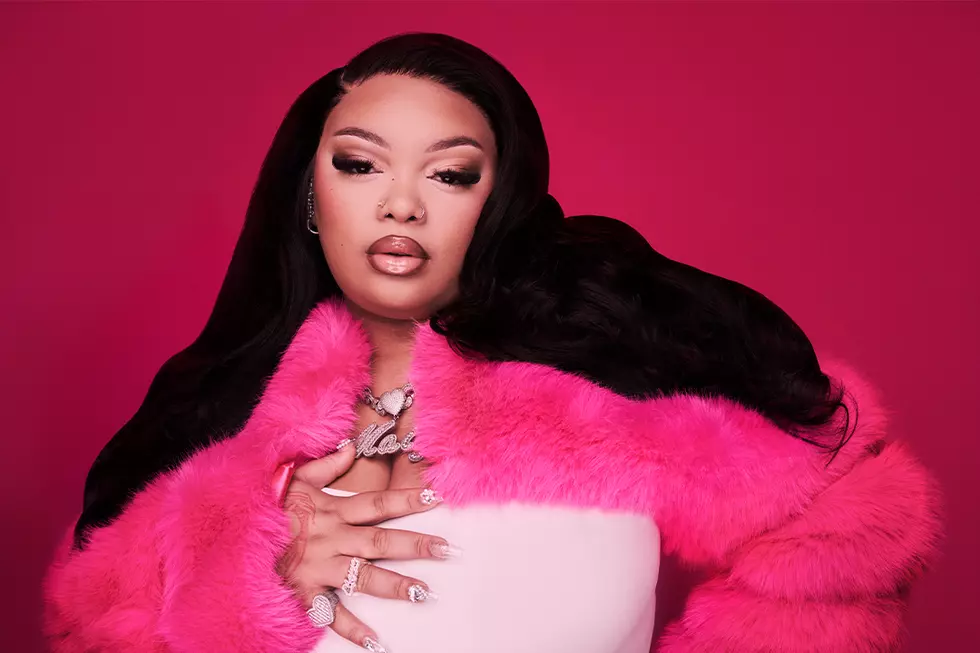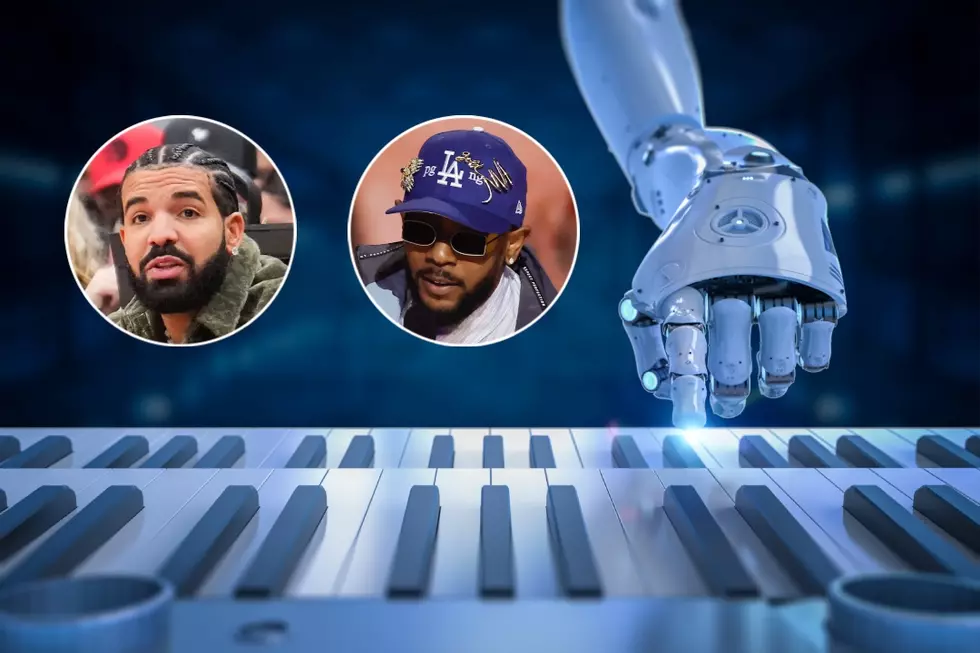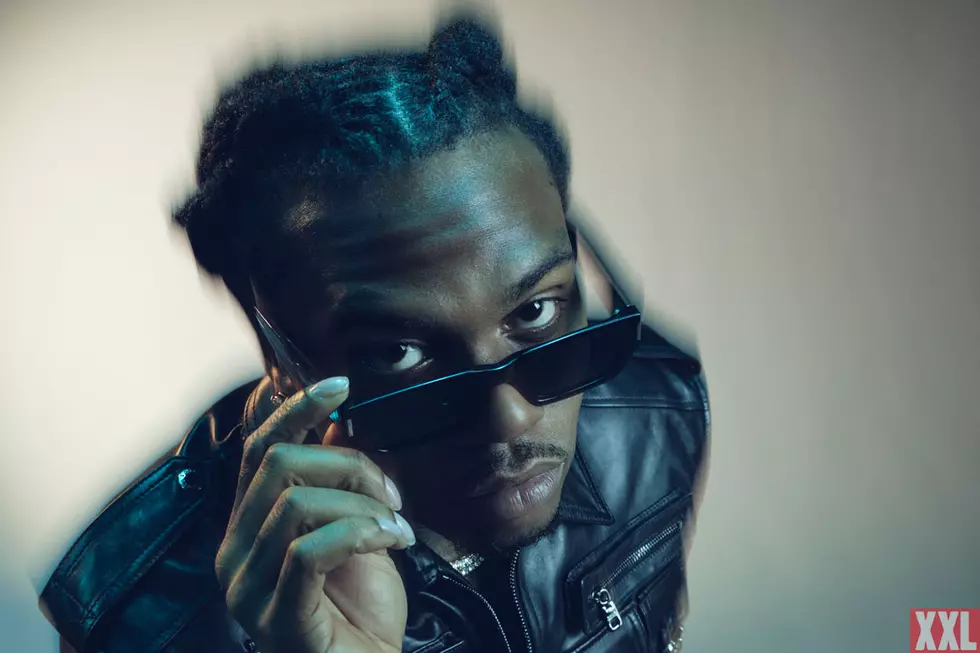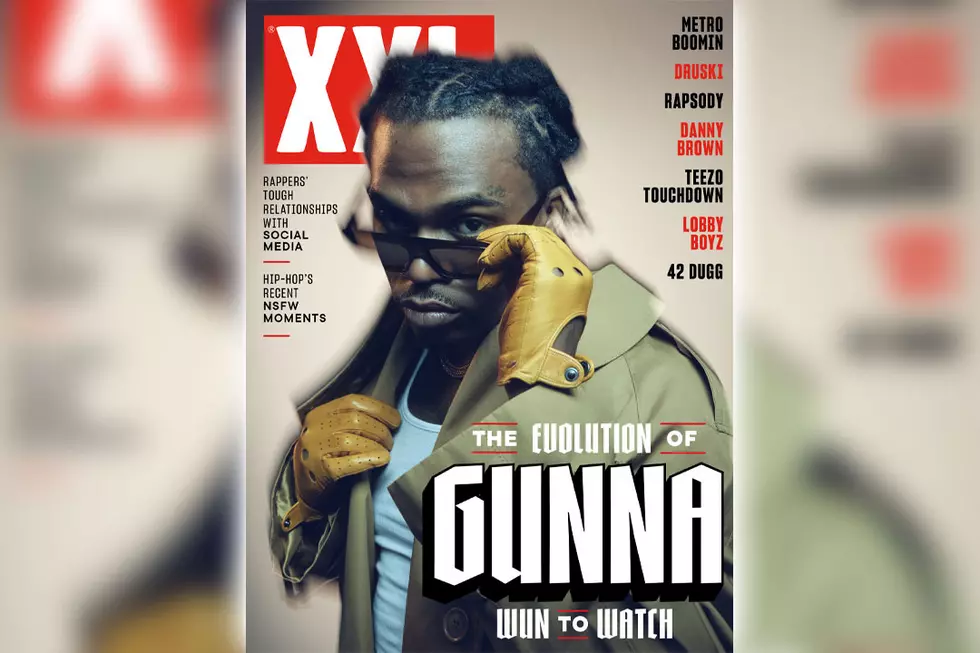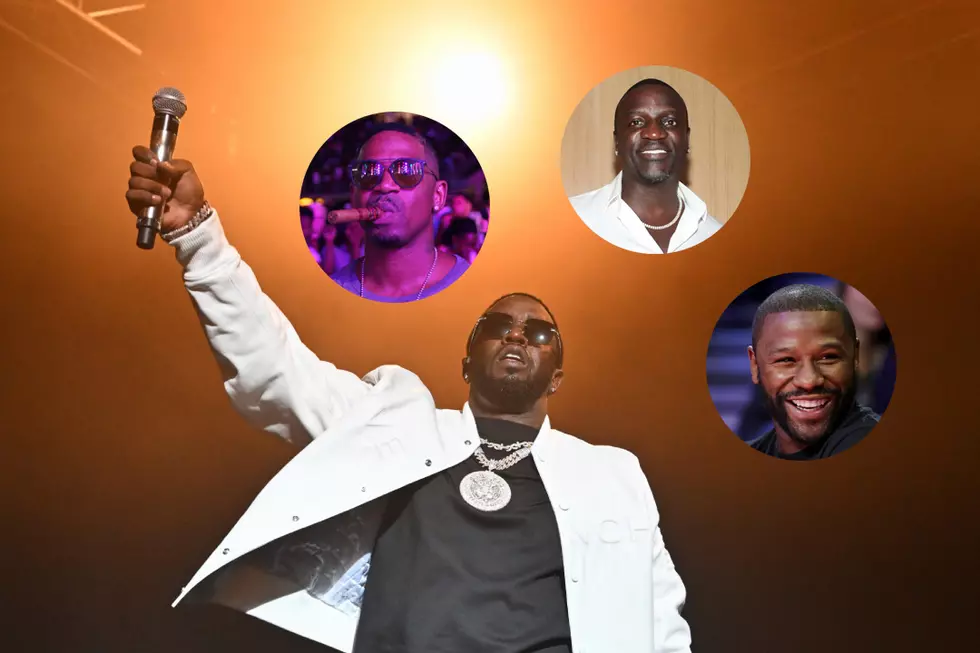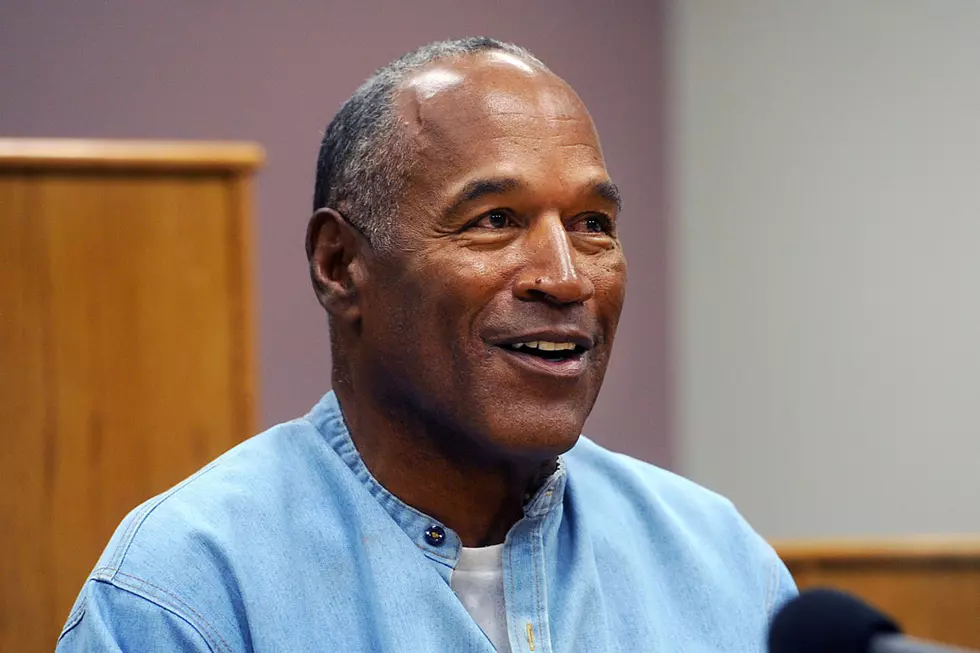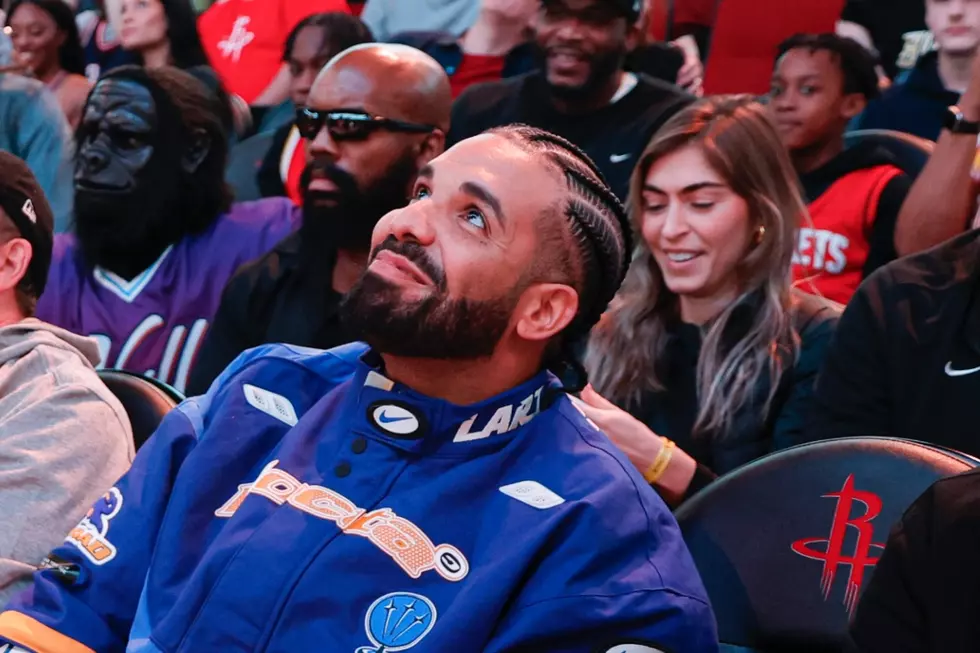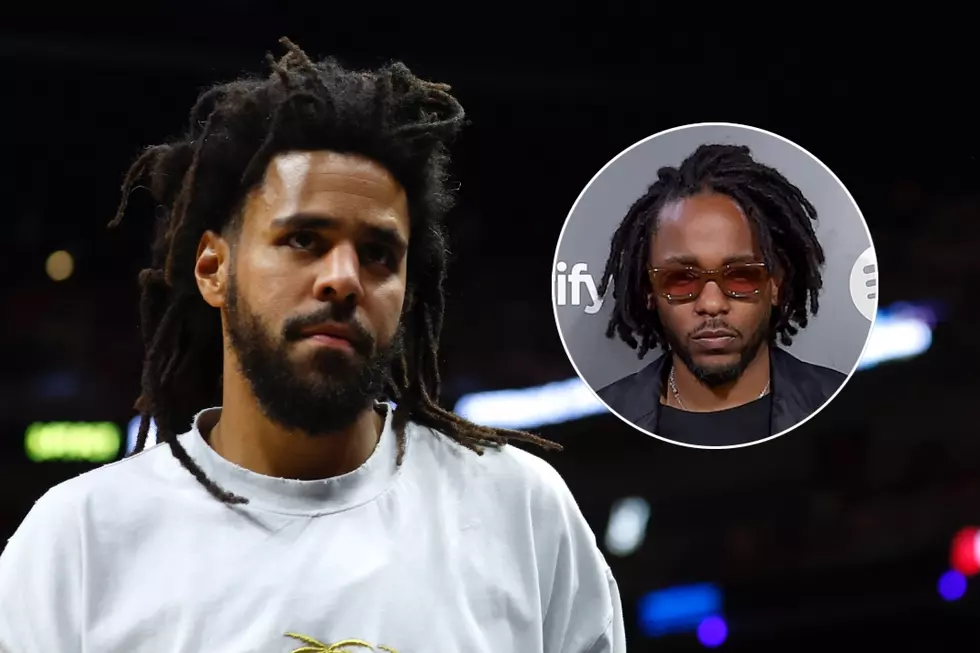
Young Greatness Talks Being Left Off the 2016 XXL Freshman List, New Orleans Rap History and the Success of “Moolah”
New Orleans rapper Young Greatness had one of the biggest rap hits of the past year with "Moolah," an uplifting Jazze Pha-produced record that came out of nowhere. It peaked at No. 85 on the Billboard Hot 100 but was at the top of national hip-hop radio playlists, becoming one of the most well-known rap records of 2016.
Now that he's made a huge splash with that song, the challenge is trying to top it. Earlier this year, he dropped the I Tried to Tell Em 2 mixtape, complete with "Moolah" tethered onto the end of the retail version, but none of those records have yet to gather the steam that "Moolah" did when it popped off.
That's okay, though, because "Moolah" was released in 2015 and took months to blow. Instead of another hit single, Young Greatness, who's signed to Quality Control alongside more personality-driven acts like Lil Yachty and Migos, is focusing on building a larger core fanbase. Under the watchful eye of Akon, he's trying to make records that last instead of popping and fizzling overnight.
XXL recently sat down with him to talk about the musical history of New Orleans, studio sessions with Akon, how he felt about the 2016 XXL Freshman list and more.
XXL: Jazza Pha produced “Moolah” but that’s not a name you see much these days. How’d you two connect?
Young Greatness: Jazze Pha was always a fan of my music and once I did my situation with Quality Control, he was one of the first producers to come over and have some beats ready for me. “Moolah” was the second beat he played out of about 30, and after listening to them I went back to “Moolah,” jumped in the studio and knocked it out. Jazze Pha’s a legend.
Why do you think people love “Moolah” so much?
I think the message and the melody.
Was there any inspiration behind the song or was it just kind of spontaneous?
It just kind of came up on the spot, but I make music about how I feel so that’s how I was feeling. That was on my heart so I just made it a fun record talking about adversity, struggles and getting to some paper.
What’s the challenge now after such a huge record?
Well for me, it’s not really a challenge because I’ve got a plethora of great records that have potential to be like “Moolah” or even bigger than “Moolah.” I think the challenge is picking the right one, finding that one and just running with it.
Did you know before that record took off that it’d be so big?
To be honest with you, I didn’t like it. I made it and I was like, “Ah man, it’s bullshit.” When I made it, we all loved the record instantly, but once I went on promo and was performing it, it didn’t feel right to me because at first people didn’t understand it. But it’s a rhythmic record, so those kind of records, you have to work them on people so they can understand it, and once people really took the time to listen to the song and the message, that’s when the song really caught on and that’s when it started feeling right to me, like yeah…this the one.
What have you learned from [the heads of Quality Control] Coach K and Pee?
I’ve been doing this longer than the average rapper, so Coach K and Pee don’t have to babysit me for me to do what I do. It's more of an understanding – I know what I need to do, they understand that I know what I need to do and I’m responsible enough to do it, and they trust me to do what I gotta do to get to the next level. How they look at me isn’t how they look at some of the other artists just because of the kind of person I am and how I carry myself. So I feel like they look at me the same way they look at themselves.
I just try to be humble and work hard. If I could say I learned something, I’ve learned to just shake it up every day and hit the pavement hard. Do what you gotta do to get to the next level, because if you’re ready, [Coach K and Pee] are gonna press a button and make sure it do what it do.
New Orleans has a rich musical history and there always seems to be new talent spewing out of the city. Who’d you grow up listening to?
I grew up listening to Juvenile, B.G., Soulja Slim, Fila Phil, Gregory D. All the underground New Orleans rappers. That’s what we like. Party music, DJ Jubilee, stuff like that. That’s what we listened to as kids, so that background was instilled in me, just having fun, the sing-rap kind of songs. A lot of people be looking at the current state of hip-hop and they forget, but I feel like New Orleans was the first city that had the melodic sing-rap, with bounce music, Juvenile, Soulja Slim, even a lot of the No Limit artists. We were always melodic with our music, so that was always part of our culture, even going back to jazz and the second line band.
Mannie Fresh gets a lot of love, and rightfully so, but Precise…
What you know about Precise, man? Mystikal [laughs]?
What are some of your favorite Precise beats?
Man, that’s a no-brainer. [Laughs] “The Man Right Chea.” That’s the all-time favorite. Everybody know that. [Precise] is still in New Orleans, still recording, mixing.
On the intro of your new mixtape I Tried to Tell Em 2, you mention your friend getting killed. Talk about that.
One of my closest friends, he was actually the person who gave me my name and helped me have the confidence to believe in myself and chase this dream. He was one of the main reasons why I do everything I do, why I go as hard as I go. This is what he wanted to do, be at the upper echelon of the music game and chase his dream. So I feel like I’m chasing this dream for me and him, even though he’s not here today. He was an important person in my life so everything I do, I dedicate it to him.
How’d he give you your name?
I used to go to the studio with him and a host of other artists from New Orleans and I picked up on rapping from being around them. Once I started coming out with songs I didn’t even have a name, so I called him one day and asked him what I should call myself. He said, “I think you should call yourself Young Greatness,” and when I asked him why he said, “Because one day you’re gonna be better than me, and better than good means great.” So it just kind of stuck with me and I ain’t never think of changing it or nothing. Young Greatness is a big name, so I gotta just live up to that shit.
You’ve got Akon on the last song “Celebration.” What was it like making that song?
It was competitive. I was in the studio telling him, “You ain’t got the juice no more. You an old head.” [Laughs] So we were going back and forth. We did the song in record time, probably seven minutes! Because there was so much animosity and competitiveness in the studio. He was like, “I’m an old head!? I’ll show you, you a trapper n*gga, I’m Akon!” It was high energy and fun in the studio that night, so we came out with a good record.
What was your reaction when you heard his part?
Well he did his part in like two minutes, right in front of me, and I think I did [the hook] in record time, like 20 seconds. We were competing so hard that night, talking shit to each other, and we weren’t even paying attention to the song. It just came out real crazy. It’s always good to have a big dog behind you, keep that competition going.
Haz Futcha produced almost half the new tape. Who’s he and how’d you two start working together?
Haz Futcha is one of the dopest producers I have on my team. I met him two years ago. He’s a kid from St. Louis and once I first heard his beats, I always knew that he had a sound that fit me, so once we started working it was just great chemistry. Every song we did just came out fire. We have so many great records. I’m excited to have him as part of my team.
You’ve got Dun Deal on the tape too. How’d that come about?
He came to the studio like Jazze Pha. Played some records and I did like four of ‘em right there, same kind of style. To be honest with you, I didn’t even know who he was. I’m from New Orleans so I really didn’t know, but he was like, “I’m Dun Deal, I’m a big fan of yours. Coach K set up the session for us to work today.” He pulled some beats up and I just knocked the songs out. It wasn’t until afterwards when I was going through his stuff and I told my manager like, “Aye…this nigga Dun Deal hard!”
Nard & B also did some work on the mixtape for “95 Era.”
Those are my dogs. We got chemistry. I love working with them. They’re probably the only producers I’d say—if I went into hibernation in the studio for two weeks—they’d be the only producers who’d be with it. They never sleep. They really dig into their craft.
What’s your personal favorite song from the tape?
“95 Era.”
Do you think there are any songs on the mixtape that are as big as “Moolah”?
Yeah. “Freak.” “Lingo Drippin.” “95 Era.” “Ball.” I feel strongly about damn near the whole tape, but if I had to choose one, it’d be two I’d choose to go right now. Okay, three. It’d be “Freak,” “Lingo Drippin” and “95 Era.” I’ll probably put Jay Z on “95 Era.” Put the big homie on that. It’s outta here. No. 1 on all charts. [Laughs]
How’d you start rapping?
Remember when Lil Wayne had the Sqad Up group? I used to go to the studio with Gudda Gudda, Supa Blanco, Deuce, Kidd Kidd, a host of other artists. But I was just the guy with the car, I was the only one with a whip at the time. Being there inspired me to want to rap, and my best friend was one of the dopest rappers in New Orleans, he just didn’t have a chance to get his big break. Everyone heard about him, he reminded me of a Big L or Jay Z, a young version, Hawaiian Sophie. Around that time, that rap style was big in New Orleans, battle rap and stuff like that. So I came in the game very lyrical, but I was like a chameleon because I knew how to be lyrical, I knew how to use my New Orleans accents to sing-rap, a combination. And as I got older, I just got better with it.
What’d you learn from the success of “Moolah”?
Build relationships. Come out with a dope project. Give people something else to talk about. Use that big record as your platform. Before I made “Moolah,” I probably had a hundred songs that were dope as fuck, but it’s a matter of dropping that one song that grabs everyone’s attention.
You have a lot of artists that are trendy, but they don’t have a big stand-out record. Even this year, some of the artists that were on the XXL Freshman list, I feel like I had a record that was bigger than all theirs, but they were more trendy. Sometimes you have to use what you got going on to get to the next thing, and that’s what I’m doing, using “Moolah” as a stepping stone to get to the next level.
Do you feel like you’re missing out on something by not being as trendy as other artists?
I love it, because I feel like for me, there’s no leadership in trying to be trendy. When a person follows the trend, they hiding their weaknesses. I love me, I love everything about me, I love being different from everyone else. That’s what makes Young Greatness. I wouldn’t change that for the world.
20 Mixtape Phenoms That Didn't Live Up to Expectations
More From XXL
